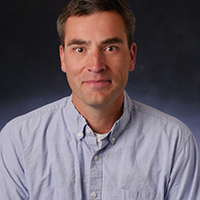Gijs de Boer Research Scientist III, Cooperative Institute for Research in Environmental Sciences University of Colorado and NOAA Physical Sciences Division

Dr. Gijs de Boer is a Research Scientist at the Cooperative Institute for Research in Environmental Sciences at the University of Colorado Boulder. His primary research revolves around the development and deployment of innovative observing technologies to measure the Earth system. This includes unmanned aerial vehicles and surface observing systems, with an emphasis on difficult to reach locations. This work has taken him to the Arctic, tropics and areas of complex terrain to lead field campaign efforts aiming to improve our understanding of the atmospheric processes supporting clouds, aerosols, precipitation and the surface energy budget, and the interactions between them. He has worked to integrate observations with numerical weather prediction, including efforts to improve numerical parameterizations and evaluate model performance. His work has resulted in being awarded the 2013 Presidential Early Career Award in Science and Engineering by President Barack Obama, and has been recognized by the leadership positions he holds in the Arctic science community, including acting as a team co-lead for the Interagency Arctic ResearchPolicy Committee (IARPC), as a US Representative to the International Arctic Science Committee (IASC)Atmosphere Working Group, and as a co-lead for the US Department of Energy (DOE) AtmosphericSystems Research High Latitude Processes Working Group. He is currently the site scientist for two majorDOE-managed observatories in northern Alaska and serves on the National Center for Atmospheric Research(NCAR) Observing Facilities Assessment Panel (OFAP). Finally, he has served on the organizing committees for a variety of international meetings, including acting as chair for the International Society forAtmospheric Research using Remotely-piloted Aircraft, organizing a repeating session on the use ofUnmanned Aerial Systems in Atmospheric Research at the American Geophysical Union fall meeting, a session on Observing with autonomous vehicles in polar regions at the Arctic Science Summit Week and assisting with the organization of a recently completed forum on Engineering and Arctic Science convened by the National Oceanic and Atmospheric Administration (NOAA).
